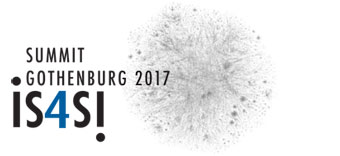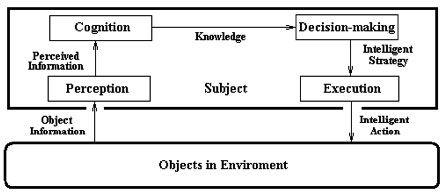The First International Forum on Ecological Methodology in Information Studies
The background for the Forum
Inspired by the studies in the structures and dynamics of eco-systems, we propose the corresponding approach to information studies.
We start by introducing some concepts fundamentally important to Information Studies.
Ecology is the study of the interactions between organisms and their physical and biotic environment. It seeks to understand the processes in ecosystems, such as the flow of matter and energy through them.
Ecosystem is composed of the dynamically interacting parts. It includes all of the living organisms in a given area, interacting with each other, and also with their non-living environments.
Information ecology is the study of interrelationships among information sub-systems and their environment based on information flows and structures within and among information ecosystems.
Information ecosystem is composed of the dynamically interacting information systems within one domain.
The common feature of ecology and information ecology is the concern with the interrelations among all elements of ecosystem the ecosystem as a whole. This is understood as the core of the ecological methodology. Contrarily, the core of reductionism is “divide and conquer” approach where parts are studied isolated from their context and assumed in isolation.
The Problem of Reductionism in Information Studies
We have achieved great progresses in information studies so far. On the other hand, field is facing many problems. The biggest problem is perhaps the methodology of studies: having not adopted the ecological methodology, but stick to the old-days methodology of reductionism (divide and conquer).
However, information processes (in education, society, economy, management, engineering, technology, science and philosophy), are not mutually isolated, but form an information ecosystem, where parts are essentially interconnected and cannot be adequately understood in isolation.
The fundamental information process within the subject-object interaction, form an information ecosystem as shown in Fig.1 below.
Fig.1 Information eco-system within subject-object interaction
When studying an element of an information ecosystem, one must be aware that the element is not an isolated unit and the methodology of reductionism would not be a proper approach, as it only can depict a “snapshot” of an element when all interactions are “frozen”. In order to understand the element in its dynamical behavior that depends on the interactions with the environment, the ecological methodology must be employed.
All kinds of information studies form a larger scale of information ecosystem.
By “information studies” we mean the studies of various information ecosystems including the studies of: information society, information education, information philosophy, information science, information technology, information engineering, information management, information economy, and the like. They together form a larger scale information ecosystem.
Even in the case of the larger scale ecology consisting of a variety of ecosystems of information studies, one must be aware that the elements are not isolated units and reductionism would not be an adequate approach for understanding of its behavior. Instead “ecological methodology” should be employed.
Topics for Discussion/Exchange in the Forum
(1) What is your understanding on the concepts of “information ecology”?
(2) Should there be an “ecological methodology” in information studies?
(3) What are the advantages, that “ecological methodology” would possess over the one of reductionism (divide and conquer) method in information studies?
(4) We have been facing numerous, and different, descriptions and understandings over the fundamental concept information, like “Neither matter nor energy”, “Negative entropy”, and “The difference that makes difference”, etc. This is an evident obstacle for achieving a “unified theory of information”. What will happen if the methodology of “divide and conquer” is replaced by “ecological methodology”?
(5) Up to now, we have been facing various kinds of “information studies” (in education, society, economy, management, engineering, technology, science and philosophy) carried out worldwide in a manner of almost mutually independent to each other. What would happen in the information studies field if the “divide and conquer” methodology were replaced by the “ecological methodology”? What would be the effect to the implementation of “information society” or “informationalization” (which indeed is the other side of “digitalization”)?
(6) What are the specific experiences you have made in your practice in information studies by employing the “ecological methodology”? Give your own example(s) as showcase in any one of the following areas:
— Studies on information education,
— Studies on information philosophy,
— Studies on information science,
— Studies of information technology,
— Studies of information engineering,
— Studies of information management,
— Studies of information economy,
— Studies of information society, etc.
Call for Papers
As one of the comprehensive events within the framework of the IS4SI Summit 2017 in Gothenburg, Sweden, the International Forum on Information Ecology is calling for papers and participants.
Authors worldwide are warmly invited to submit papers, which must be original and have not been submitted to other conferences or journals for publication.
Organization
Organized by IS4IS China Chapter
Supported by International Society for Information Studies (IS4IS)
Cooperated with Univ. of Gothenburg and Chalmers Univ. of Technology
Co-Chairs of The Forum
Yixin Zhong, University of Posts and Telecommunications, Beijing, China
e-mail: zyx@bupt.edu.cn
Gordana Dodig-Crnkovic, University of Gothenburg, Chalmers University of Tech, Sweden
e-mail: dodig@chalmers.se
Pedro C. Marijuan, Foundation of Information Science, University of Zaragoza, Spain
e-mail: pcmarijuan.iacs@aragon.es
Wolfgang Hofkirchner, Vienna University of Technology, Austria
e-mail: wolfgang.hofkirchner@tuwien.ac.at
Mark Burgin, California University Los Angeles, USA
e-mail: markburgin@cs.ucla.edu
Co-Chairs for the Program Committee of The Forum
Xueshan Yan, Peking University, China
Joseph Brenner, International Center for Trans-disciplinary Research, Switzerland
Jiyi Yan, University of China Academy of Sciences, China
Søren Brier, Copenhagen Business School, Demark




